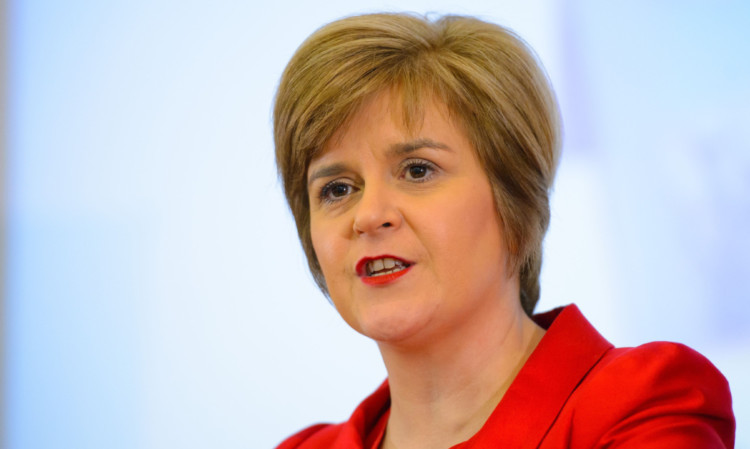
More than two-thirds of Scots believe the pound would still belong to Scotland as much as it belongs to the rest of the UK in the event of a referendum Yes vote.
Months of planning for a rare Coalition meeting outside of London took a curious twist when this paper revealed both the UK and Scottish Governments will be holding their cabinets barely ten miles apart in Aberdeen tomorrow.
The ‘clash of the cabinets’ has been given even more spice following the Chancellor’s bombshell assertion that an independent Scotland would not be allowed to form a Sterling currency union with the rest of the UK.
So what awaits UK Government ministers stepping off their plane in the north-east?
Some sober polling figures for a start.
The predicted backlash to George Osborne’s pound pronouncement looks to be under way, though it is not clear how long it will last.
A Panelbase poll of 1,000 Scots published today is expected to show the gap has narrowed again since the last one by the firm just two weeks ago, which had Yes on 37% and No on 49%.
A further question in the poll, commissioned by the SNP, shows that Scots also very much believe the pound is as much Scotland’s as it is the rest of the UK’s.
Respondents were asked: “Thinking about the possibility of an independent Scotland in the future, do you agree or disagree that the pound belongs to Scotland as much as it belongs to the rest of Britain?”
A total of 70% agreed, 18% disagreed and the rest didn’t know.
The question, deliberately put in the context of Scotland voting Yes, throws up an interesting message to the pro-Union campaign. Borrowing from the iconic 1970s SNP slogan, ‘It’s Scotland’s pound’, could have some traction for the pro-independence camp.
The figures show the view is especially true among the all-important Labour voters who are needed to make a Yes vote a reality. A breakdown of the polling question shows 65% of Labour voters agree the pound belongs to Scotland as much as it belongs to the rest of the UK, with just 22% disagreeing. Interestingly, even among Tory voters, around 41% agree the pound should still belong to Scotland in the event of a Yes vote.
Deputy First Minister Nicola Sturgeon said: “When thinking about independence, people believe that the pound belongs to Scotland every bit as much as it belongs to the rest of the UK by a factor of nearly four-to-one.
“There is strong support for that proposition among Labour and Lib Dem voters as well as SNP, and even among Tory voters only a minority disagree with it. This finding is a revealing insight into why George Osborne’s sermon on the pound backfired.”
The UK Government heads north armed with plans worth potentially billions of pounds to the Scottish economy.
There is likely to be support for proposals for a new Scottish-based oil and gas regulator.
In addition, Lib Dem energy minister Ed Davey is expected to sign off on the much-delayed plans for a carbon capture and storage project in Peterhead.
Speaking ahead of the visit, David Cameron said: “Two weeks ago I gave a speech setting out why I believe Scotland should remain part of the UK.
“In that speech I spoke about our long term economic plan to move from a country sinking under too much debt to one that is dynamic, innovative and creating thousands of jobs for people right across our country.
“This week I will take the Cabinet to Scotland where we will set out how the UK Government can maximise the benefit of North Sea oil and gas to the UK economy for decades into the future, giving a vital boost to local communities and families across Scotland.
“For the past 300 years, Britain has led the way in finding new sources of energy.
“It is the strength of the UK’s broad-based economy that can make the difference and ensure we can invest in our energy for the long-term future.”

Enjoy the convenience of having The Sunday Post delivered as a digital ePaper straight to your smartphone, tablet or computer.
Subscribe for only £5.49 a month and enjoy all the benefits of the printed paper as a digital replica.
Subscribe